第32章 THE FOURTH(5)
Simultaneously with this it would not be impossible to develop a new college system with strong faculties in modern philosophy, modern history, European literature and criticism, physical and biological science, education and sociology.
We could in fact create a new liberal education in this way, and cut the umbilicus of the classical languages for good and all.I should have set this going, and trusted it to correct or kill the old public schools and the Oxford and Cambridge tradition altogether.Ihad men in my mind to begin the work, and I should have found others.I should have aimed at making a hard-trained, capable, intellectually active, proud type of man.Everything else would have been made subservient to that.I should have kept my grip on the men through their vacation, and somehow or other I would have contrived a young woman to match them.I think I could have seen to it effectually enough that they didn't get at croquet and tennis with the vicarage daughters and discover sex in the Peeping Tom fashion I did, and that they realised quite early in life that it isn't really virile to reek of tobacco.I should have had military manoeuvres, training ships, aeroplane work, mountaineering and so forth, in the place of the solemn trivialities of games, and Ishould have fed and housed my men clean and very hard--where there wasn't any audit ale, no credit tradesmen, and plenty of high pressure douches....
I have revisited Cambridge and Oxford time after time since I came down, and so far as the Empire goes, I want to get clear of those two places....
Always I renew my old feelings, a physical oppression, a sense of lowness and dampness almost exactly like the feeling of an underground room where paper moulders and leaves the wall, a feeling of ineradicable contagion in the Gothic buildings, in the narrow ditch-like rivers, in those roads and roads of stuffy little villas.
Those little villas have destroyed all the good of the old monastic system and none of its evil....
Some of the most charming people in the world live in them, but their collective effect is below the quality of any individual among them.Cambridge is a world of subdued tones, of excessively subtle humours, of prim conduct and free thinking; it fears the Parent, but it has no fear of God; it offers amidst surroundings that vary between disguises and antiquarian charm the inflammation of literature's purple draught; one hears there a peculiar thin scandal like no other scandal in the world--a covetous scandal--so that I am always reminded of Ibsen in Cambridge.In Cambridge and the plays of Ibsen alone does it seem appropriate for the heroine before the great crisis of life to "enter, take off her overshoes, and put her wet umbrella upon the writing desk."...
We have to make a new Academic mind for modern needs, and the last thing to make it out of, I am convinced, is the old Academic mind.
One might as soon try to fake the old VICTORY at Portsmouth into a line of battleship again.Besides which the old Academic mind, like those old bathless, damp Gothic colleges, is much too delightful in its peculiar and distinctive way to damage by futile patching.
My heart warms to a sense of affectionate absurdity as I recall dear old Codger, surely the most "unleaderly" of men.No more than from the old Schoolmen, his kindred, could one get from him a School for Princes.Yet apart from his teaching he was as curious and adorable as a good Netsuke.Until quite recently he was a power in Cambridge, he could make and bar and destroy, and in a way he has become the quintessence of Cambridge in my thoughts.
I see him on his way to the morning's lecture, with his plump childish face, his round innocent eyes, his absurdly non-prehensile fat hand carrying his cap, his grey trousers braced up much too high, his feet a trifle inturned, and going across the great court with a queer tripping pace that seemed cultivated even to my naive undergraduate eye.Or I see him lecturing.He lectured walking up and down between the desks, talking in a fluting rapid voice, and with the utmost lucidity.If he could not walk up and down he could not lecture.His mind and voice had precisely the fluid quality of some clear subtle liquid; one felt it could flow round anything and overcome nothing.And its nimble eddies were wonderful! Or again Irecall him drinking port with little muscular movements in his neck and cheek and chin and his brows knit--very judicial, very concentrated, preparing to say the apt just thing; it was the last thing he would have told a lie about.
When I think of Codger I am reminded of an inscription I saw on some occasion in Regent's Park above two eyes scarcely more limpidly innocent than his--"Born in the Menagerie." Never once since Codger began to display the early promise of scholarship at the age of eight or more, had he been outside the bars.His utmost travel had been to lecture here and lecture there.His student phase had culminated in papers of quite exceptional brilliance, and he had gone on to lecture with a cheerful combination of wit and mannerism that had made him a success from the beginning.He has lectured ever since.He lectures still.Year by year he has become plumper, more rubicund and more and more of an item for the intelligent visitor to see.Even in my time he was pointed out to people as part of our innumerable enrichments, and obviously he knew it.He has become now almost the leading Character in a little donnish world of much too intensely appreciated Characters.